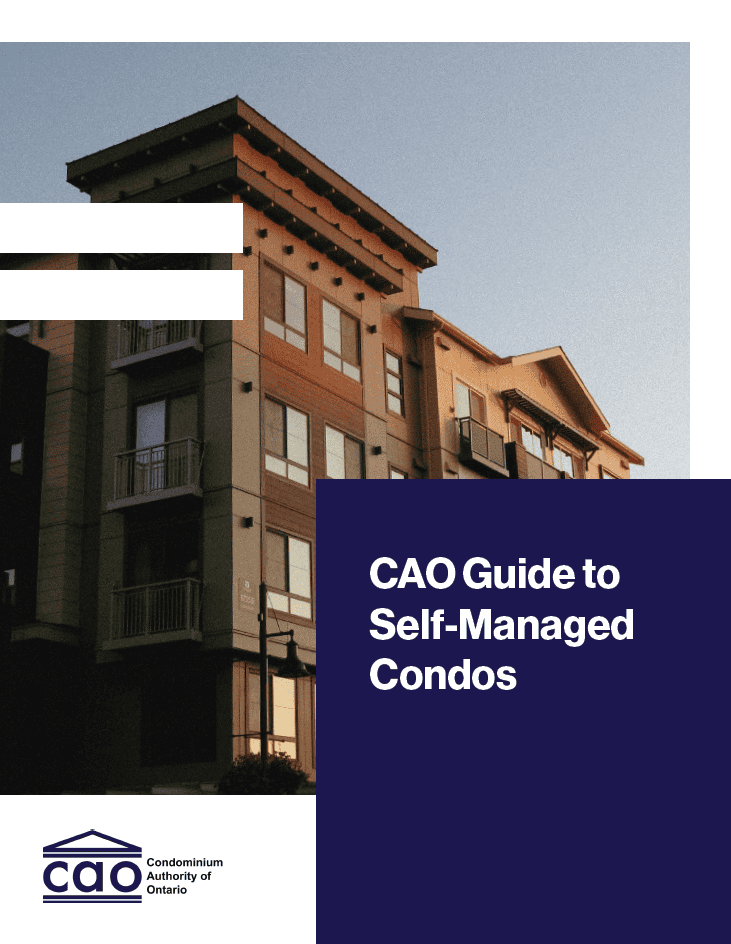GUIDE
CAO Guide to Self-Managed Condos
A self-managed condominium is one where the board of directors runs day-to-day operations directly instead of hiring condo managers to do it.
What is self management?
There are several reasons why some condo boards my choose not to hire condo managers. These include
- The condo’s operations can be handled by the board without the need for extra help
- The condo is too small to justify the cost of a management company
- The condo is in a rural area and there are no managers nearby
Self managed corporations are bound by the same legal requirements as any other corporation.
Is self management right for you?
The decision is unique to each corporation’s specific needs. Boards can re-assess whether they want to stay self-managed at any time if daily operations become too cumbersome.
Boards also have the option to split the difference by exploring selected or unbundled services from a management company. These are partial services that allow boards to access expert advice on an as-needed basis. Corporations that choose this method are still considered self-managed.
The four pillars of self management
Self-managed condo corporations’ activities generally fall under four broad buckets:
- Governance
- Operations
- Community
- Finance
Governance
Condo corporations are governed by the Condo Act and their own governing documents. Board members must understand these documents and how to change them. They must conduct fair and transparent elections, use skills matrices to attract new board members, have clearly delineated duties and declare any conflicts of interest. These things and more make up what is considered good governance practices.
Operations
The best way to run a condo is to be prepared. Self-managed boards must list, schedule, discuss and assign all required tasks quarterly, annually or as needed. They must respond to owners’ needs, keep good records and retain expert advice as needed.
This section also includes a suggested breakdown of how to assign tasks among board members of self-managed condos.
Finance
Board members are bound by a standard of care. This means they must make decisions that are in the best interests of the owners they represent and act as any reasonable person would under the same circumstances. This is particularly important when dealing with finances. Self-managed boards must understand and carry out reserve fund studies, ensure their corporation’s funds are adequate, ensure the reserve fund is adequately funded, work with auditors, appropriately calculate and collect condo fees and much more. This section provides some best practices when dealing with financial issues.
Community
Self-managed boards can work very hard but it may all be for naught if owners are not aware of all the work that is going on in their community. This is why boards need a sensible and time-bound plan plan with appropriate tactics on how to communicate with their owner community. What do your condo’s unit owners respond best to? Is it paper announcements posted in a public place? Do they prefer social media? A newsletter?
Apart from these tactics, there are also legally required deadlines and processes to follow for annual AGMs and owner requisitioned meetings. Learn more about these in this section.
Tools & Templates
The appendices in the self-managed guide provide some useful blank templates that can be tailored to the needs of the corporation.
